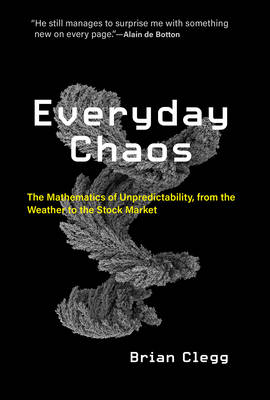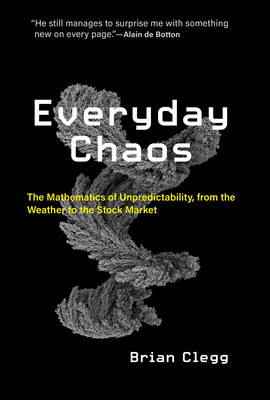
- Retrait gratuit dans votre magasin Club
- 7.000.000 titres dans notre catalogue
- Payer en toute sécurité
- Toujours un magasin près de chez vous
- Retrait gratuit dans votre magasin Club
- 7.000.0000 titres dans notre catalogue
- Payer en toute sécurité
- Toujours un magasin près de chez vous
Everyday Chaos
The Mathematics of Unpredictability, from the Weather to the Stock Market
CleggDescription
The math we are taught in school is precise and only deals with simple situations. Reality is far more complex. Trying to understand a system with multiple interacting components--the weather, for example, or the human body, or the stock market--means dealing with two factors: chaos and complexity. If we don't understand these two essential subjects, we can't understand the real world. In Everyday Chaos, Brian Clegg explains chaos and complexity for the general reader, with an accessible, engaging text and striking full-color illustrations.
By chaos, Clegg means a system where complex interactions make predicting long-term outcomes nearly impossible; complexity means complex interacting systems that have new emergent properties that make them more than the sum of their parts. Clegg illustrates these phenomena with discussions of predictable randomness, the power of probability, and the behavior of pendulums. He describes what Newton got wrong about gravity; how feedback kept steam engines from exploding; and why weather produces chaos. He considers the stock market, politics, bestseller lists, big data, and London's wobbling Millennium Bridge as examples of chaotic systems, and he explains how a better understanding of chaos helps scientists predict more accurately the risk of catastrophic Earth-asteroid collisions. We learn that our brains are complex, self-organizing systems; that the structure of snowflakes exemplifies emergence; and that life itself has been shown to be an emergent property of a complex system.







